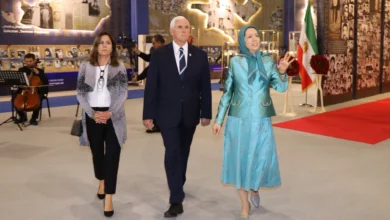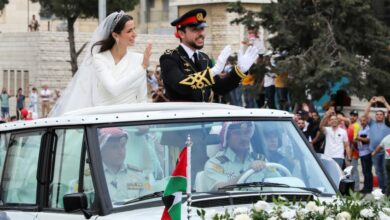Amman-Jordan's King Abdullah faces unprecedented calls by a mix of Islamists, liberals and traditional supporters for moves toward a constitutional monarchy, Jordanian politicians said on Tuesday.
Emboldened by uprisings across the region, these usually divergent voices are grouping around a broad demand for constitutional changes to limit the extensive executive powers of the Hashemite monarchy.
Sheikh Hammam Said, head of Jordan's Muslim Brotherhood, said voters should have the right to elect their prime minister, an appointment currently made by the king.
"We are seeking an elected government where people choose their governments," he said, echoing demands to curb the king's sweeping powers to appoint cabinets and dissolve parliament, granted in successive changes to a 1952 constitution.
Mohammad Abu Rumman, political analyst at Jordan University's Center for Strategic Studies, said competing political forces were speaking out for the first time on the topic, although they differed over how to move forward.
"Even traditional groups are now also talking openly about a constitutional monarchy that would pave the way for more mature democracy where power alternates among political parties," he said.
Widespread unrest across the Middle East has encouraged the country's small Twitter community to debate the monarchy's role.
"The current situation is flawed. Power is not with people. It's non checkable by law," Mohanad Al-Arabiat tweeted.
Unlike other anti-government protesters in the Arab world, Jordanian activists have not sought to topple the king, acknowledging that he is a unifying force among competing tribes and a majority of citizens of Palestinian origin.
Even Laith Shubailat, the country's most famous dissident and long-time advocate of a monarchy on the British model, who advised King Abdullah recently to give up most of his powers, cited the "stability of a throne that Jordan needs and without which the country will fall apart."
Aware of the gravity of the protests that rocked the kingdom in recent weeks, the king told lawmakers and top officials gathered at his palace on Sunday that his own attempts at reform had been derailed.
Abdullah has promised to meet long-standing demands to reform an electoral law that marginalizes heavily populated cities that are Palestinian and Islamist strongholds in favor of sparsely populated tribal areas that are the backbone of support for the monarchy.
"When I say reform. I want real and quick reforms … Many officials wasted opportunities because of the reluctance to move forward and fear of change," the monarch said. "I will not allow that to happen again."
But those changes would do little to address the more recent calls to curb the powers of the throne.
Even modest efforts to modernize a tribally structured society have faced stiff resistance from those who benefit from state jobs and subsidies channeled mainly to native Jordanians, or East Bankers, as opposed to citizens of Palestinian origin.
Politicians say the mukhabarat intelligence service, which has a pervasive influence in public life, has held the king back from reforms on grounds they would hand power to the Islamists, the largest opposition group that draws support from both tribal and urban areas but has strong Palestinian roots.
Analysts say the monarch is torn between appeasing an East Bank establishment that holds a tight grip on power and worried by loss of state benefits, and pushing for wider reforms that would empower Jordanians of Palestinian origin, a majority of the seven million population.
Many Palestinians, pillars of the business community, say they face official discrimination and are mostly excluded from the security forces and underrepresented in political life.
The monarch has so far responded to anti-government protests by appointing a former intelligence general as prime minister in a step seen as dealing a blow to Islamist and liberal hopes for genuine reform.
"The monarch is caught in between. He wants reforms but what are the reforms that can satisfy his tribal power base and also appease Jordanians of Palestinian origin?" said Mohammad Omar, a prominent Jordanian blogger.




